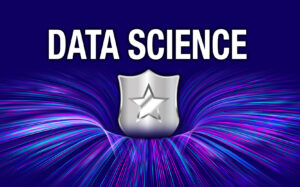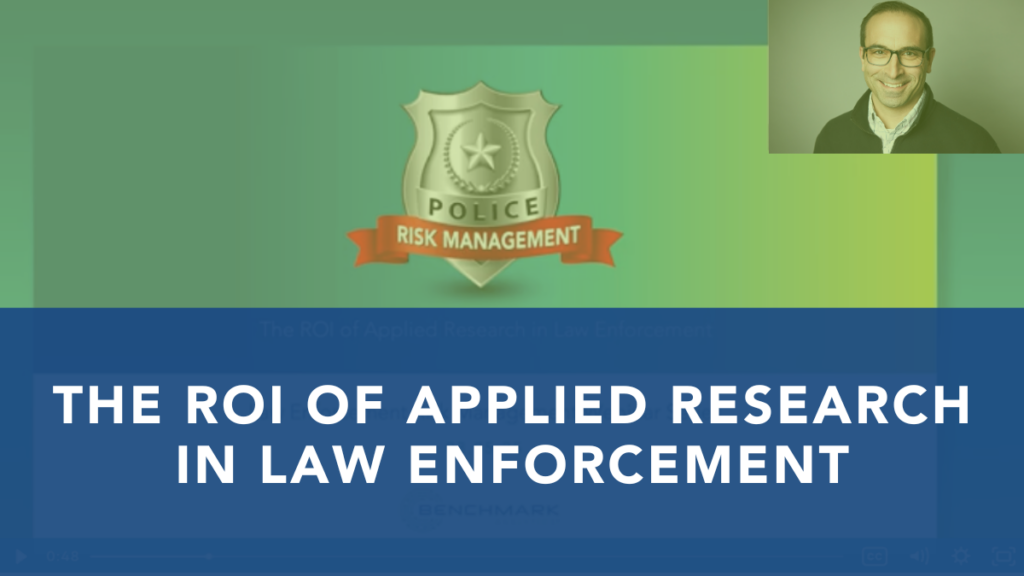The Future of Data Science and Policing
Posted
October 14, 2022
Share:
Advancements like drones, virtual reality training, and other hardware-based technologies are said to be “revolutionizing” policing, giving law enforcement leaders a vast array of tools to confront rising crime rates and public demands for action. Useful as these tools are, they cannot inform policy decisions or point to improvements in personnel management strategies –measures that show the greatest potential in positively impacting public trust and the effectiveness of police operations as a whole. The emerging field of data science, however, has the capability to move the needle on some of these “big picture” problems.
 Without intentional and research-based data collection and analysis practices, policing leaders are effectively flying blind when shaping policies and allocating resources within their agencies. Just as troubling, they may miss out on substantial cost-savings that often come with an investment in their data science capabilities. This article looks at the basics of data science in law enforcement and its potential to guide meaningful and positive changes in law enforcement.
Without intentional and research-based data collection and analysis practices, policing leaders are effectively flying blind when shaping policies and allocating resources within their agencies. Just as troubling, they may miss out on substantial cost-savings that often come with an investment in their data science capabilities. This article looks at the basics of data science in law enforcement and its potential to guide meaningful and positive changes in law enforcement.
What is Data Science?
Data science is a relatively new technical field, with the term only coming into common usage in the last 25 years. Though those in the field still debate some of the finer points of what encompasses data science, Amazon Web Services (AWS), a global leader in cloud computing, defines it in the following way.
“Data science is the study of data to extract meaningful insights for business. It is a multidisciplinary approach that combines principles and practices from the fields of mathematics, statistics, artificial intelligence, and computer engineering to analyze large amounts of data. This analysis helps data scientists to ask and answer questions like what happened, why it happened, what will happen, and what can be done with the results.”
Many in the field differentiate data science from statistics because it focuses on questions and problems unique to the digital age. Essential to this definition is the notion that data science is not a singular pursuit but, instead, a set of intersecting skill sets and techniques used to study a problem. Crucially, data scientists in fields like law enforcement and public policy use these insights to craft evidence-based solutions to these problems.
Crime Side Advances
Tracking largely with the personal computer revolution of the 1980s – which brought computing and data processing out of university labs and into homes and smaller offices – data science found an immediate use-case in policing.
COMPSTAT is one of the earliest and most recognizable examples of the use of data science methodology in law enforcement. Pioneered in the NYPD in the early 1990s, COMPSTAT incorporated crime mapping and trend analysis and was thought to have significantly impacted crime rates in cities that have adopted the practice.
Building on the fundamentals of COMPSTAT, a new generation of predictive analytics shows impressive potential as a crime-fighting tool – with substantial cost-savings as well. According to the National Institute of Justice (NIJ), predictive analytics build on established policing strategies while leveraging growing data sources to inform newer, proactive tactics. It also offers substantial cost-savings, enabling policing leaders to deploy their resources more efficiently and, ultimately, effectively.
Informing Policy and Personnel Management
In addition to its demonstrated success in field operations, data science also has a vital role on law enforcement’s administrative side. The 2015 final report from The President’s Task Force on 21st Century Policing emphasized the importance of data collection and analysis, stating, “(A) lack of relevant data impacts the ability of communities and law enforcement agencies to make informed policy and practice adjustments based on good information.” The report called for enhanced data collection efforts as a means to increase transparency and accountability – ultimately in service of improving public trust in policing.
Accurate and reliable data is crucial to modern law enforcement personnel management strategies. For instance, early intervention systems rely on this data for predictive analysis, and the stakes couldn’t be higher. False negatives derived from faulty analysis are potentially costly, contributing to an agency’s exposure to the risk of a lawsuit or civil rights claim.
In building First Sign®, Benchmark’s data scientists and engineers leverage the power of the world’s largest multi-jurisdictional officer performance database while incorporating iterative learning that uses cumulative analytics to get “smarter” and more efficient over time. This technology gives supervisors a more holistic picture of an officer’s performance, especially relative to others, and enables them to engage in more targeted and meaningful interventions.
Finally, the use of data science in personnel management has the potential for substantial cost savings. According to a recent paper published by the Ash Center for Democratic Governance and Innovation at Harvard, every one dollar of the cost associated with data analytics can return up to nine dollars in value to agencies. At a time of economic uncertainty when municipal budgets are strained, the cost-savings inherent in a data-informed personnel management strategy cannot be ignored.
Looking Ahead
At Benchmark Analytics, our purpose is guided by data science and evidence-based analysis. We specialize in public safety personnel management – it is our area of unique expertise. When we gather and analyze data sets, we use the product of that work for personnel management, professional standards, and early intervention. Taking this a step further, we work in partnership with our academic research consortium and use this data to contribute to a broader understanding of policing for the public good.
Incorporating data science more thoroughly into law enforcement operations allows law enforcement leaders to make smart and more cost-effective decisions, from personnel decisions to deploying resources in the field. Benchmark Analytics is proud to be on the leading edge of using data science to produce better policing outcomes while improving community relations.
Related Posts
Ready to Experience the Benchmark Difference?
Benchmark Analytics and its powerful suite of solutions can help you turn your agency’s challenges into opportunities. Get in touch with our expert team today.



